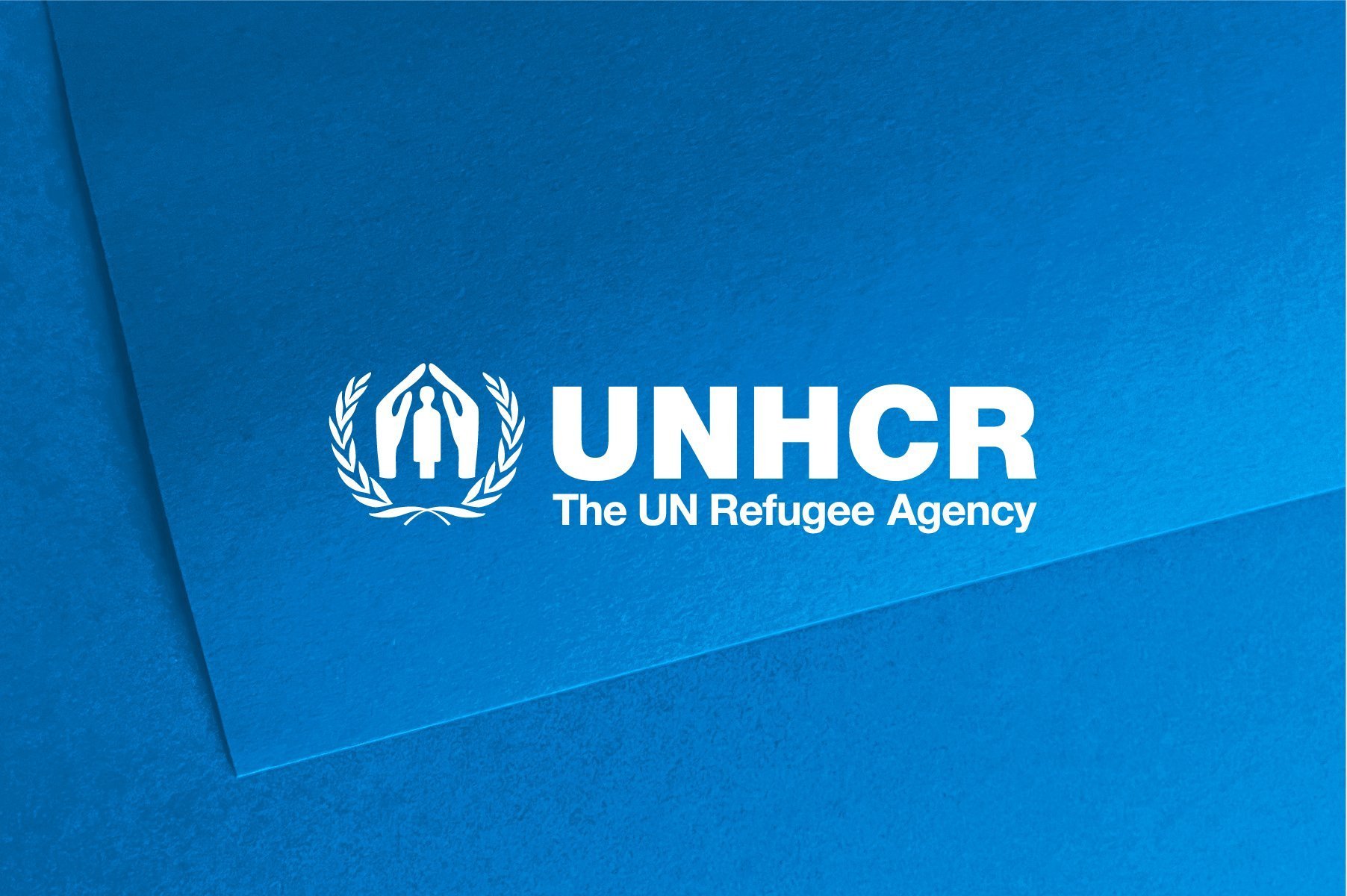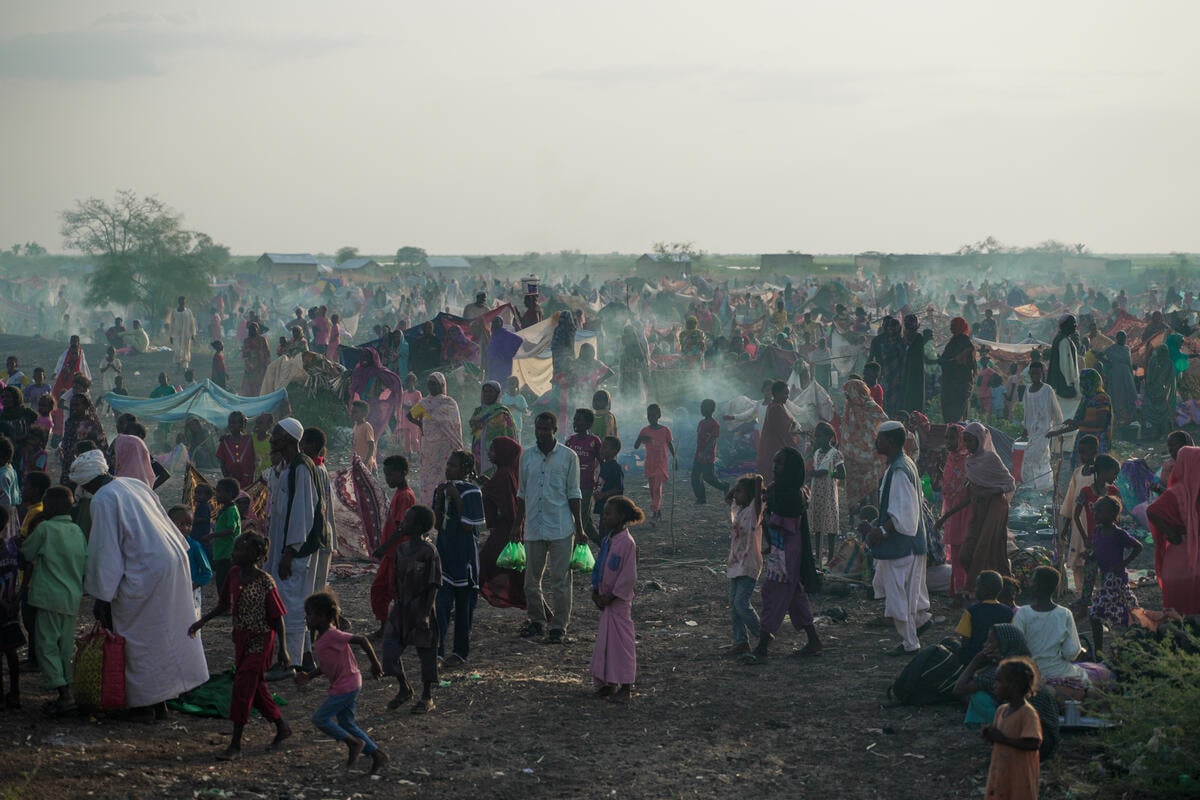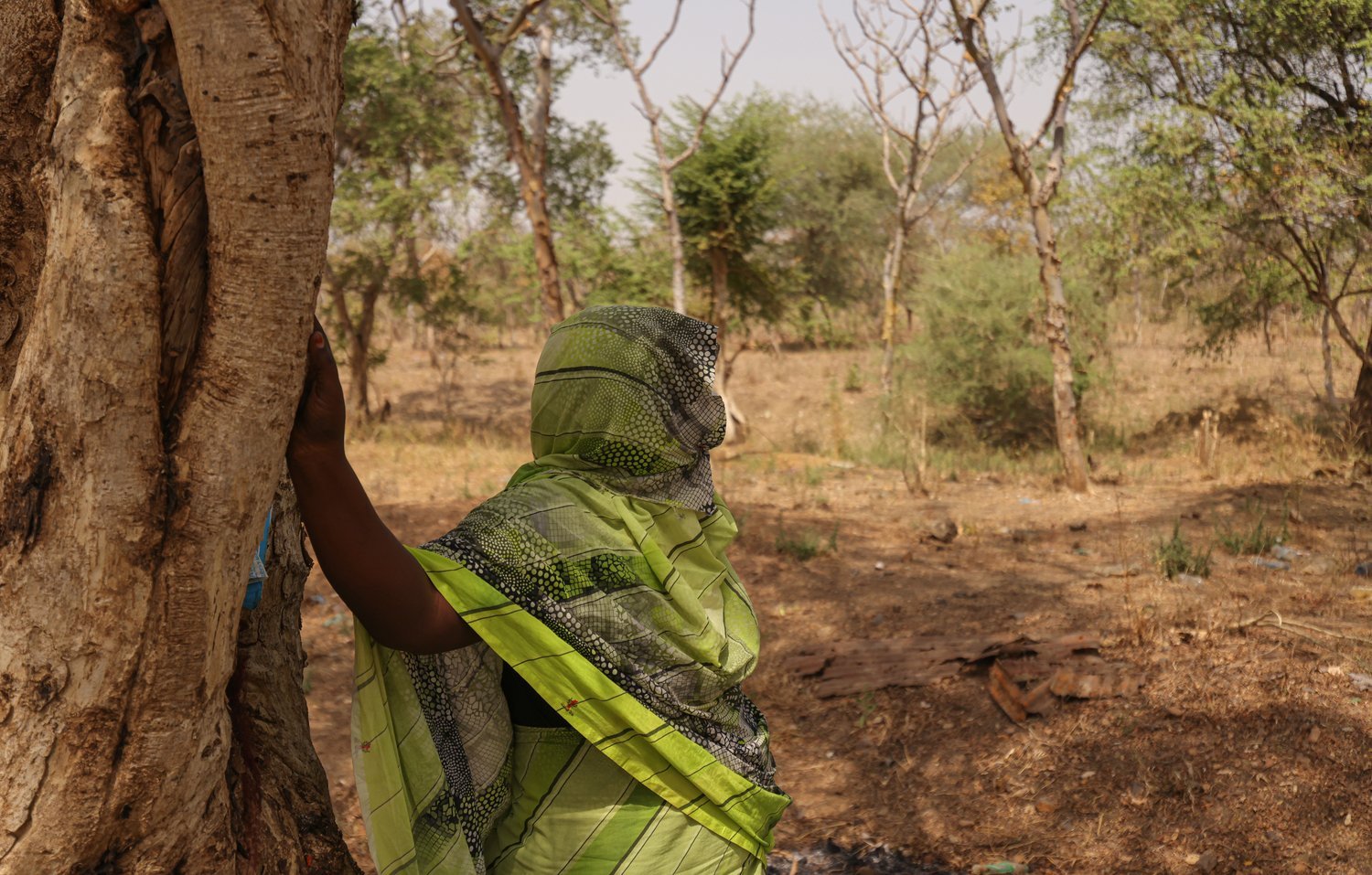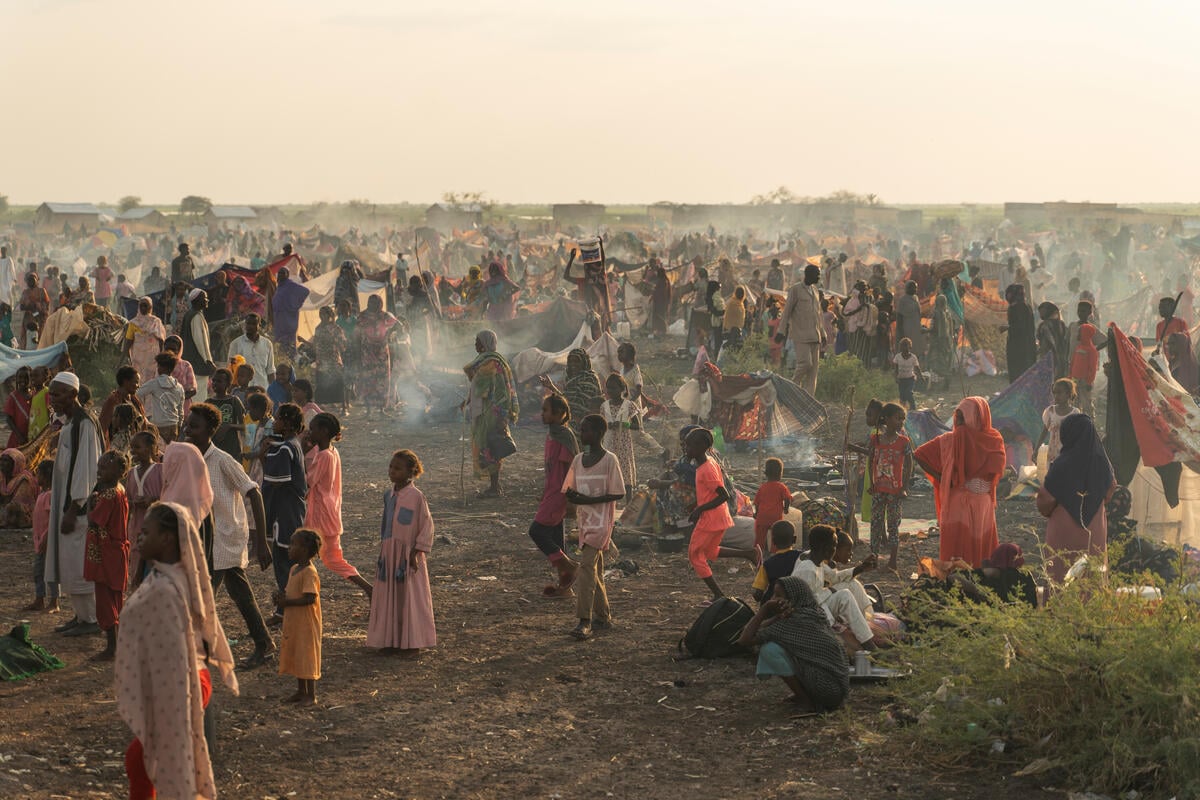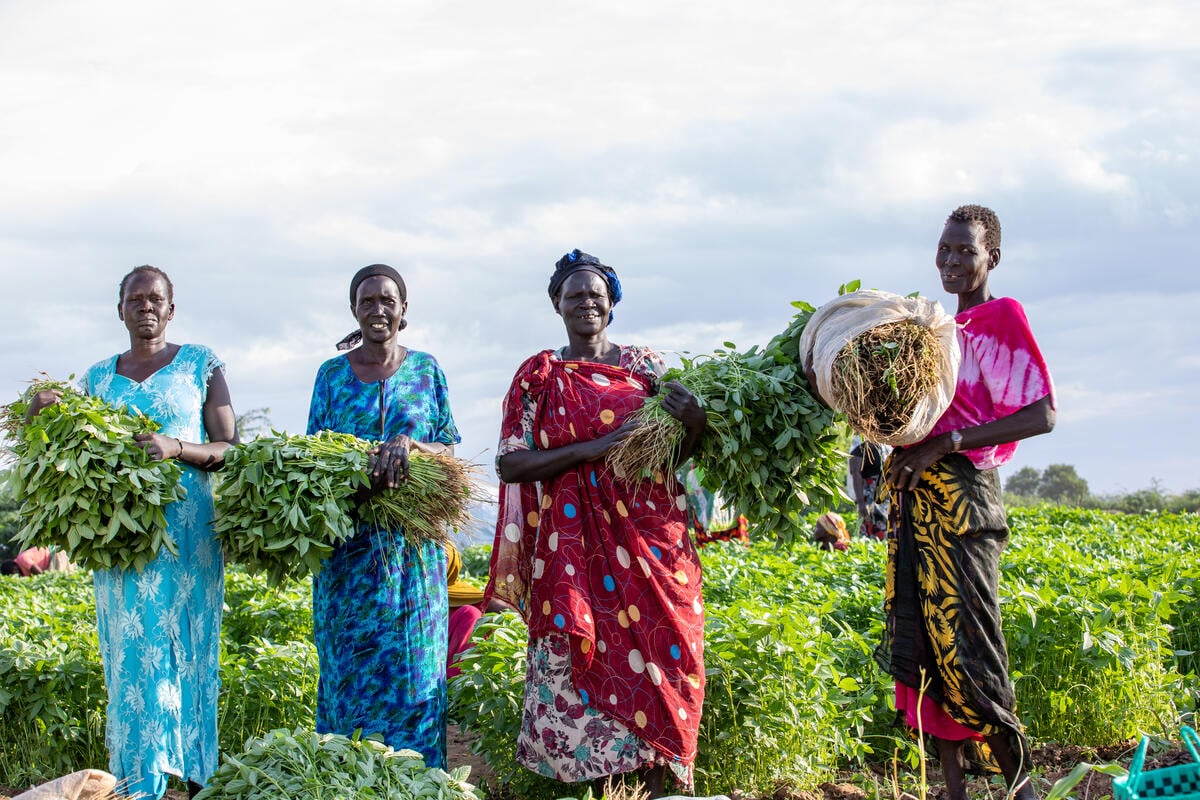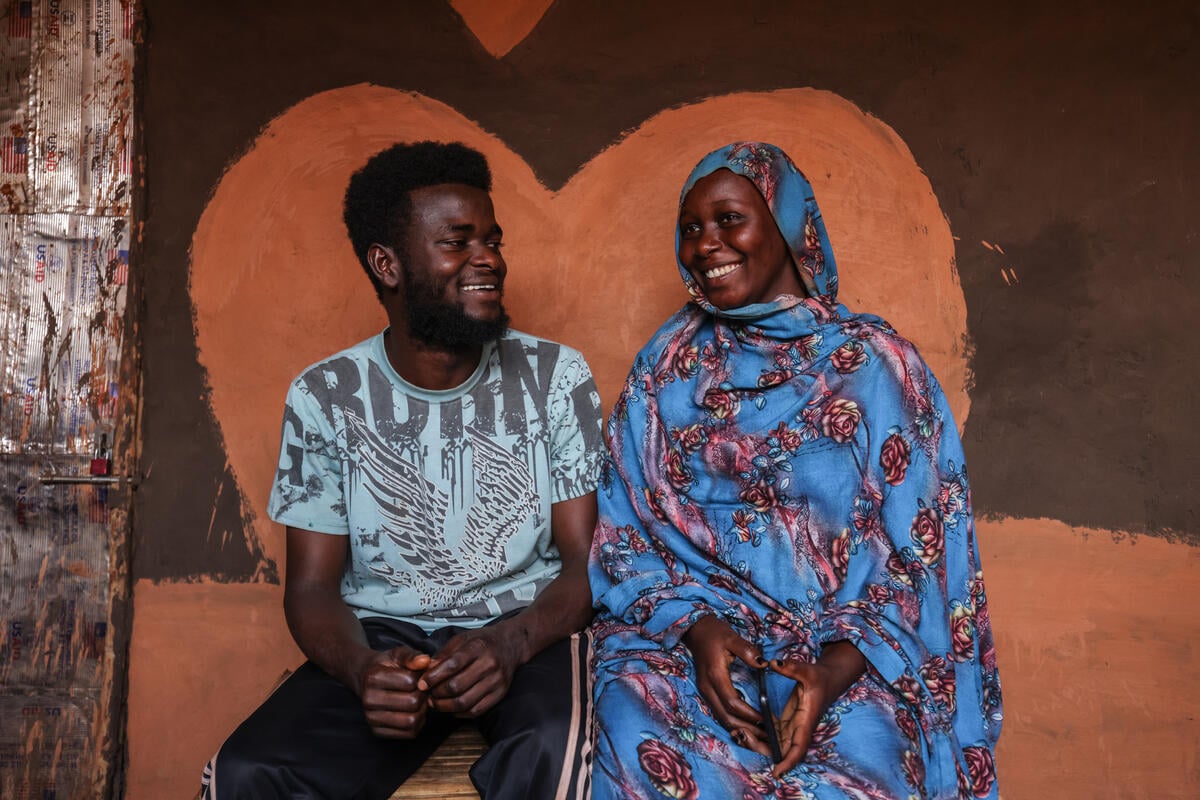Darfur: difficulties of providing protective presence in the region; registration of Chadian refugees in Sudan
Darfur: difficulties of providing protective presence in the region; registration of Chadian refugees in Sudan
Although hampered by continuing security incidents, UNHCR mobile protection teams are currently working in western Darfur near the Sudan-Chad border to monitor internal displacement as well as mapping and assessing the condition of abandoned and destroyed villages. This work is vital in trying to help a complicated of mix of internally displaced people, recent returnees from Chad, and even Chadian refugees who still reside in Darfur.
Five UNHCR missions have recently been completed to Tendelti, Gellu, Mororo and Rigel el Kobri, all of them 20-30 km west of El Geneina, near the border with Chad. The UNHCR teams found dozens of people who had previously fled Darfur for Chad, but then returned to Sudan expecting to go back to their villages. Many of them returned from Chad last July and some were able to go back to their homes. But others are still unable to return home because of security fears.
Other missions have been mounted to camps for internally displaced around the West Darfur city of El Geneina, where the security situation remains worrisome for both the displaced and international agencies trying to help them. On October 10, Masteri (south of El Geneina) was declared a "no go" zone after an alleged rebel attack on a police station. On the same day, a car from the NGO Save the Children was destroyed by an anti-tank mine in north Darfur, killing two staff members and wounding a third. On October 12, security clearance for a UNHCR team to visit Seliah, north of El Geneina, was revoked because of reported tensions in the Sirba area along the way. On the same day, a UNHCR mission on its way to Hashaba village to check for potential returnees was aborted when police stopped the team at gunpoint. The team was later allowed to continue its mission, but only with police escort so UNHCR decided to cancel the mission and return to El Geneina. On October 14, a UNHCR team on mission in Zalinge reported that an NGO car was stopped by the military on the road between Zalinge and Nyala. On October 16, the villages of Abu Surug and Bir Seiba, north of El Geneina, were attacked by janjaweed militia, reportedly leaving 11 people dead. As a result, movements by international aid agencies in El Geneina and Abu Surug areas were suspended.
All of this gives you some idea of the difficulties we and our partners are facing in trying to provide at least some protective presence in the region.
In a separate development, UNHCR and the Sudanese government Committee on Refugees, COR, have finalized plans to register Chadian refugees in Azerni camp, about 30 km north of the West Darfur capital of El Geneina, in preparation for an eventual repatriation to Chad. These Chadian refugees have been in Darfur for many years, but now, having been caught up in the trauma of the recent violence in Darfur, want to return home. In 1984, thousands of Chadian refugees crossed into Darfur, escaping a severe drought and potential famine as well as border clashes between Chadian and Libyan forces.
In 1992, with the agreement of the Sudanese and Chad governments, UNHCR facilitated the repatriation of about 100,000 Chadian refugees. However, some 5,000 refugees decided to remain in Sudan and were relocated to Azerni camp, where UNHCR negotiated with the government for them to farm land near the camp. Of this group, 1,600 with Arab origins were relocated in 1997 to Arputni village after a conflict with the black African community. They have not expressed a wish to return to Chad.
In February 2004, the refugees in Azerni camp were attacked by the janjaweed militia. Six refugees were killed and large numbers of cattle were stolen. After the attack the refugees started telling UNHCR they wanted to go back to Chad, mainly because of security concerns but also because they were losing their self sufficiency. The fear of attack is preventing them from cultivating their fields. Most of the camp residents are women and children. The refugees come from the Abéché, Guéréda, Farchana, Goz Beida, Adré and Iriba areas of eastern Chad, where UNHCR has its camps for Sudanese refugees.
Our offices in West Darfur and in eastern Chad are working closely on a repatriation schedule. The registration exercise in Azerni should start next month, after Ramadan. Similarly, within a month, UNHCR eastern Chad will start to assess and profile villages of origin in Chad and will meet with local leaders to inform them of the repatriation. "Go and see" visits will then be organized to allow refugees in Azerni to make an informed decision about going back to Chad. Most refugees in Azerni still have families in Chad but have not been in touch with them for the past 20 years. The social structures have also changed and some villages may no longer exist. The repatriation movements should start by the beginning of 2005 but they are strongly connected to the situation in Chad where 200,000 refugees from Darfur have arrived in the past 20 months.



